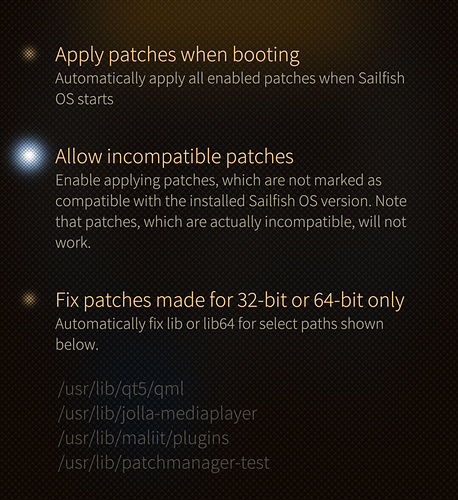“Ahoi, pirate sailors!” 
The Patchmanager dev team (@vlagged, @olf, and myself) is thrilled to be able to announce the new 3.2.0 release of Patchmanager, the tool that allows you to safely apply modifications to your system other people have created for you.
Release Highlights:
L10N: This new version integrates various updates to translations that were missing in 3.1.1, along with improvements of the UI language in a couple of places.
Service Restart UI: We now bring a bit more clarity in the “Restart Services” screen, where we now list which apps or system components will be restarted. So you know whether it’s just the Messages app, or the whole Homescreen (killing all apps)
Automatic conversion of patches: But we also have introduced an important new feature: conversion of patches originally written for 32-bit (or 64-bit) systems to a format that applies to the current users’ system.
These kinds of patches currently fail to apply, which this new release now tries to resolve.
The technical details are below if you’re interested.
To enable this feature, go into Patchmanager’s Settings and tick the “Convert Patches between 32 bit and 64 bit” option.
Because it is new, despite our thorough testing we regard it as a bit experimental still, so please report any issues or other feedback with it (or with anything else patchmanager) here or at Github.
Patchmanager 3.2.0 is available at scurvy peddlers down at the docks as well as from repositories near you at both Openrepos and Chum.

